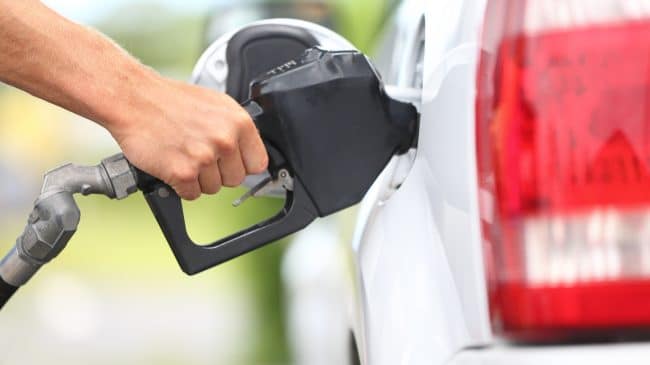Should California’s families spend as much on gas taxes and vehicle fees as they spend on Christmas? Maybe you could make that argument if taxpayers and drivers were getting a world-class transportation system for their money, but they are not.
California has the second highest gas taxes in the nation and yet has a low-quality road system that is poorly maintained and overly congested. Proposition 6, which is on the November ballot, basically asks voters to decide if they think their gas taxes are fair and are providing them with good value. Prop. 6 would repeal all gas and fuel taxes enacted by California since Jan. 1, 2017, and would require voter approval for any future increases in fuel taxes and/or vehicle fees.
State leaders and defenders of California’s high gas taxes oppose Prop. 6 and argue that California’s lousy infrastructure is exactly why gas taxes need to be so high. The only way to fix the state’s ailing roads and highway system, they say, is to raise taxes and spend more money.
Estimates show that if Prop. 6 passes the state’s revenues will fall by nearly $3 billion per year right off the bat. But for context, keep in mind that $3 billion is much less than the state is spending on the supposed high-speed bullet train that most likely will never be completed or operational.
Furthermore, vehicle fees and fuel taxes are among the most regressive taxes. They are inequitable, penalize travel and make it harder for people to get to work, family functions and recreational locations. An analysis by the California Policy Center and Reform California suggests that “because low-income families are in a lower tax bracket, that two-car low-income family still must earn almost $2,000 in pre-tax earnings just to pay their California car and gas taxes.”
Meanwhile an average family of four in California with two cars is currently paying $520 to $620 per year in gas taxes and car fees, plus an extra $125 on food due to the impact gas taxes have on food and shipping costs, plus however much more they spend on other products that also have higher prices due to the impact of high gas taxes on shipping costs. As a ballpark estimate, that is around an $800 increase in the cost of living for this typical family due to fuel taxes. Ironically, California Policy Center and Reform California point out, that is close to the amount of money that the average family spends on Christmas each year ($935.58), according to the National Retail Federation.
California does not need more money for transportation; state agencies need to learn how to be responsible with the money they have. California’s politicians seem to love higher transportation taxes and borrowing money — which adds significant long-term costs via interest payments — for transportation projects. But where is that transportation money going? Only 28 percent of vehicle-related taxes and fees in California are actually spent on highways and roads.
Reason’s Annual Highway Report, which ranks all 50 states on the cost-effectiveness and performance of state-controlled highways, highlights California’s inefficient and ineffective spending. In the most recent edition of the report, California ranked 42nd in overall spending and cost-effectiveness. The Annual Highway Report, which is based primarily on data the states report to the federal government, shows “California ranks 14th in fatality rate, 28th in deficient bridges, 33rd in rural Interstate pavement condition, 46th in urban Interstate pavement condition, and 49th in urbanized area congestion. On spending, California ranks 43rd in total disbursements per mile and 46th in administrative disbursements per mile.”
California spends more per lane mile than most other states yet its roads are in worse condition than most other states when it comes to traffic congestion and pavement condition. Californians are paying some of the highest fuel taxes in the nation for one of the worst road systems. That is a raw deal that Californians should not accept.
This column originally ran in The Orange County Register.

